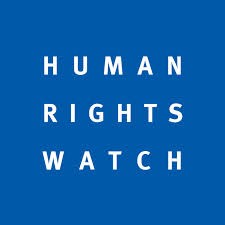U.S. surveillance compels Human Rights Watch to speak up in its 2014 annual report
The report also highlights human rights abuses in over 90 countries, including a global trend towards "abusive majoritarianism" and painfully slow responses to the suffering in Syria.
Human Rights Watch has released its 2014 report and, for the first time in its history, it has addressed an issue that every Internet user should care about.
Read the whopping 667-page report here.
Article by Philip Oltermann for The Guardian:
Surveillance overreach by the US government could have a disastrous long-term effect on internet freedom and free speech, Human Rights Watch warns in its latest report.
The US-based organisation says in its 24th annual survey that there is a danger some governments with poor human rights records, like China or the Gulf states, will use the NSA scandal as an excuse to "force user data to stay within their own borders, setting up the potential for increased internet censorship".
Human Rights Watch's 2014 report is the first in its 36-year history to include a warning about data protection. Previous reports had focused on internet issues mainly in relation to China, where the government has censored internet searches and arrested bloggers who have criticised the government online.
Over the years, China has invested a lot of money in building up the Golden Shield Project, known as the "Great Firewall of China". Last year, the Communist party threatened legal action against people who post on microblogs such as Sina Weibo. Activists fear the NSA scandal will now give China's government an excuse to "nationalise" the Chinese internet completely.
On Monday China appeared to indicate a new, tougher course when it announced that internet users will be required to register their real names to upload videos on the Chinese equivalent of YouTube. The new rule has been implemented, according to a state agency, in order to "prevent vulgar content, base art forms, exaggerated violence and sexual content in internet video having a negative effect on society".
Human Rights Watch director Kenneth Roth told the Guardian that his organisation had chosen to concentrate on data protection because "serious missteps by the US government compelled us to speak up".
Read more at The Guardian.


 Take action now!
Take action now!
 Sign up to be in the loop
Sign up to be in the loop
 Donate to support our work
Donate to support our work